Is Salt Bad For Dogs? When To Worry?
17.09.2022.
Salt is one of the main elements of human nutrition. We all know that large consumption of salt and salty products can cause different health problems. Does the same apply to our dogs? Many dog owners have heard that dogs should avoid salt by any means necessary because it will cause toxicity even if the dog ingests one grain of salt. Well, this isn't quite correct.
Dogs can and should eat food that contains salt because salt is vital for the normal functioning of different organs in the dog's body. It is important to know how much salt dogs can eat before it causes health problems for your dog.
Is salt good for dogs?
Every dog needs sodium in their diet because it helps with many different body functions. Some of them include:
- Regulating blood pressure
- Regulating fluid levels
- Nerve function
- Muscle function
Many dog owners don't understand that every commercial dog food contains salt, and they often get confused since they cannot see it on the ingredient list, but salt is included.
That said, salt is very good and necessary in dogs' diets and in the right amount. The right amount is already included in your dog's regular food, and by giving him some extra salt, you can cause him problems.
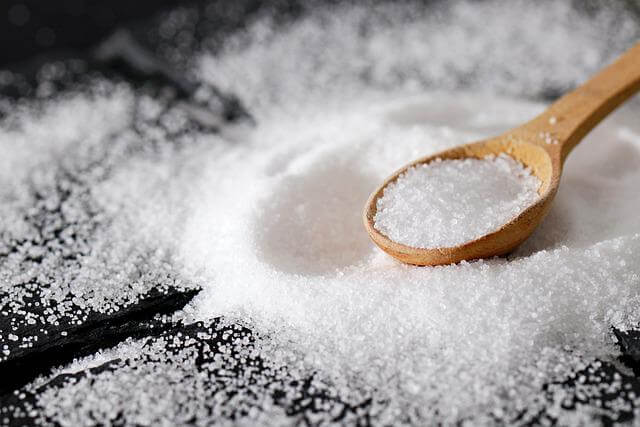
RELATED: Can Dogs Eat Sausages
Is salt bad for dogs?
As we said earlier, dogs need salt in their diet, which is mainly included in their well-balanced dog food. Adding additional salt to their diet can cause problems for your dog. So in large amounts, salt is pretty bad for dogs.
Ingesting additional salt could cause salt poisoning for your dog, depending on the amount your dog has ingested and the size of the dog. Of course, smaller dogs will need a smaller amount of salt to experience salt poisoning compared to large and giant dog breeds.
How much salt do dogs need?
Depending on the size of a certain dog, the amount of salt needed will depend. Our team of veterinarians has put together useful displays of how much salt will be needed for every dog, depending on their size, to cause problems and poisoning.
- Small dog breeds – up to 25 lbs. – 1-10 g of salt
- Medium dog breeds - 26-40 lbs. – 20-25 g
- Large dog breeds – 41 – 70 lbs. – 35-40 g
- Giant dog breeds more than 70 lbs. - more than 65 g
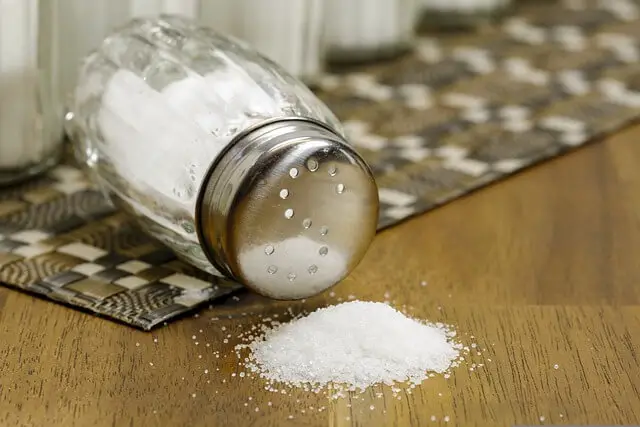
RELATED: Can Dogs Eat Granola Bars? Here’s Why it Might Not be Safe
What would happen if a dog eats a lot of salt?
In case of your dog eats far more salt than is required, there is a possibility that your dog will experience health problems. Depending on the amount of salt your dog has ingested, symptoms can vary, and the severity of health problems can differ.
Usually, symptoms to watch out for if your dog eats a lot of salt include:
- Vomiting
- Diarrhea
- Excessive thirst
- General stiffness
- Tremors
- Respiratory problems
- The constant need for urination
- Seizures
- Coma
If you suspect your dog has ingested a large amount of salt or if the symptoms appear, contact your vet immediately. This is a serious health problem that will need to take care of as soon as possible.
WORLD DOG FINDER TIP: In case of ingestion of salt, you must provide your dog with constant fresh and clean water to prevent dehydration and restore fluid loss. By doing this, you can almost remove the possibility of damage from salt poisoning.
What would happen if the dog didn't get enough salt?
Not getting enough salt in their system could cause your dog to lose some main functions. We know that eating too much salt will cause problems for your dog, but the same applies if your dog doesn't eat enough.
In case of a deficiency of sodium, your dog could experience hyponatremia. Hyponatremia is a serious health problem that can happen if your dog doesn't ingest enough salt but also if your dog suffers from some health problems that are stopping the absorption of sodium into their system.
People often ask us how they can find out if their dog has low sodium levels, and to understand that, you must watch for symptoms that could indicate your dog is suffering from hyponatremia. They include
- Vomiting
- Lethargy
- Disorientation
- General weakness
- Refusal of food
- Seizures
In case of any of the mentioned symptoms, you must contact your vet and ask him to quickly examine your dog. If you act fast, there is a higher possibility that your dog will make it without any severe consequences.
RELATED: Can Dogs Eat Guacamole? Here’s Why It’s a Bad Idea.
What are the products that contain a lot of salt?
Many dog owners are often tempted to offer their dogs some of the food scrapes or pieces of food they are eating. By doing so, they don't realize that this food could potentially contain high salt levels, thus causing problems for their dog.
Human food that owners like to share with their dogs includes:
- Pizza
- Different fast food meals
- Some types of cheeses
- Processed meats such as hot dogs, sausages
- Potato chips
- Pretzels
Take note that this food should be avoided, and you should not share it with your dog to secure good health for your furry friend.
RELATED: Is Beef Jerky Safe For Dogs?
How to avoid salt poisoning?
The best thing you can do to prevent salt poisoning is to stop giving your dog table scraps and other human products that contain a large amount of salt. Always provide your dog with fresh and clean water so you can prevent potential dehydration in your dog.
Anything containing a large amount of sodium should be kept far away from your dog's reach. If you suspect your dog has eaten salt or products containing a high sodium level, contact your vet and schedule an emergency meeting.
World Dog Finder team

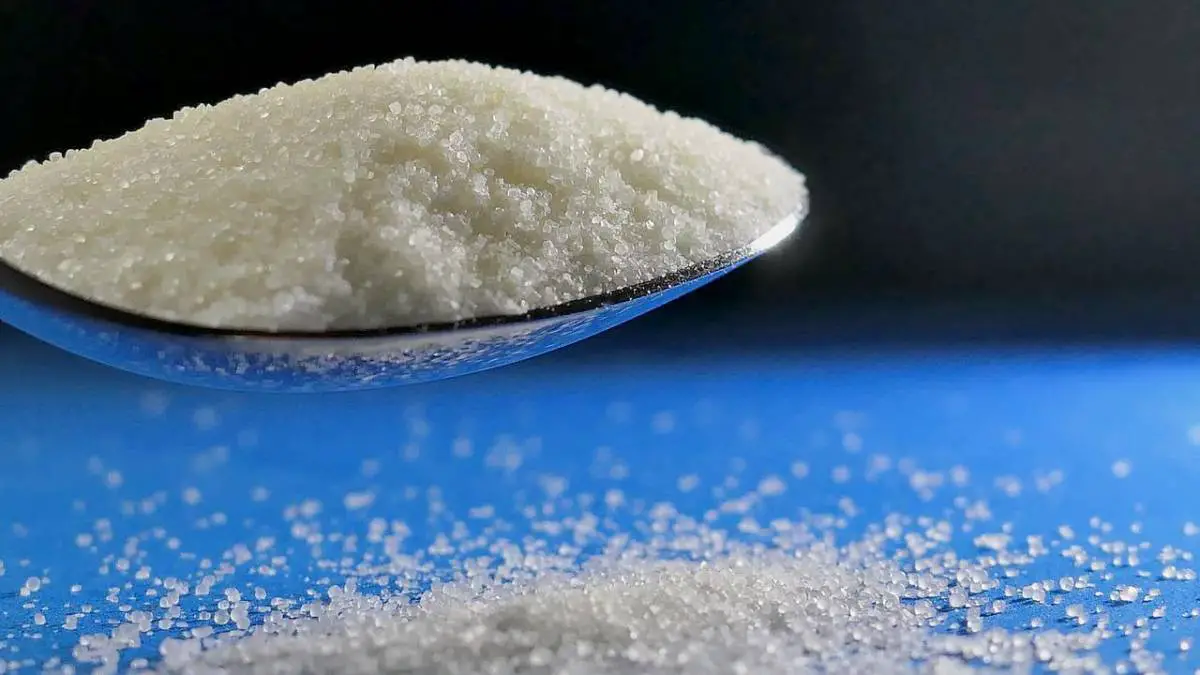
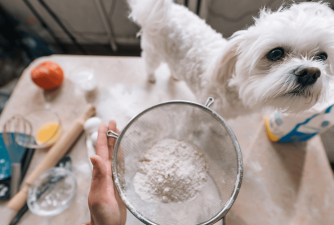

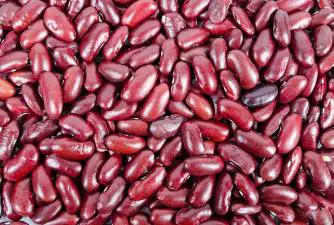


Share